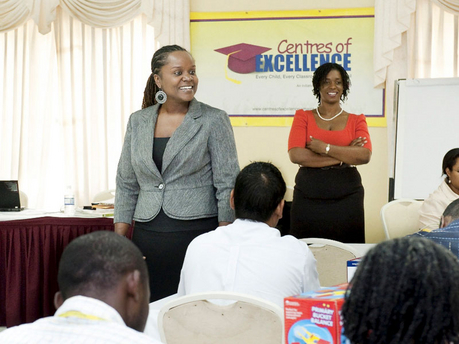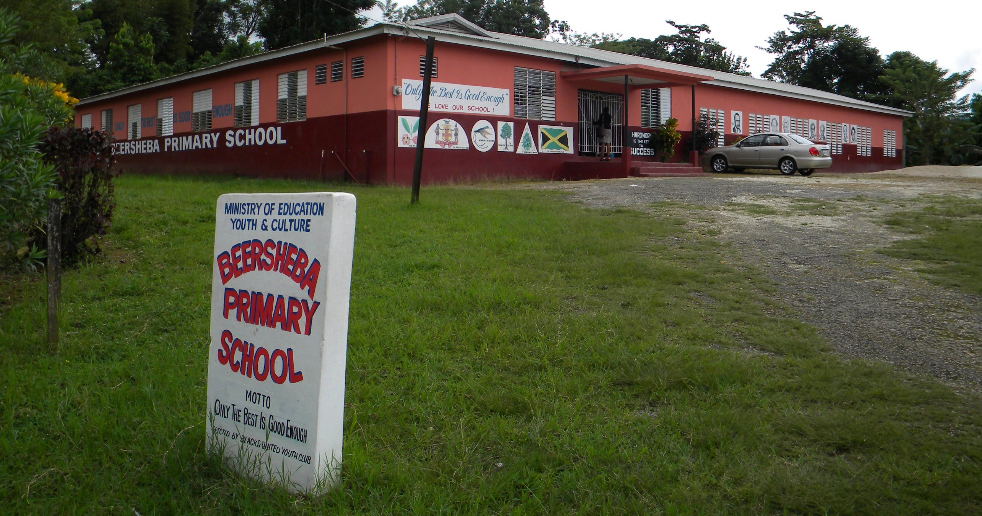Published: Sunday | January 20, 2013

Educator wants data-driven analysis of performance in schools
Educator and programme manager at the Mutual Building Societies Foundation (MBSF), Dr Renée Rattray, is urging school administrators to cultivate a culture of documenting while rigorously analysing data to improve the management of the institutions.
Speaking against the background of the data-driven stance which administrators of schools under the MBSF Centres of Excellence Programme have taken, Rattray lamented that many schools, particularly non-traditional high schools, are not using the data, which they already have, to their best advantage.
“If administrators are to achieve a better understanding of the variables influencing both teacher and student performance, then they must understand how to gather, analyse, and use data,” Rattray stated recently.
“Administrators need to analyse data on attendance, average performance, and learning styles to understand more specifically what is happening with individual and groups of students.
“When behavioural incidents emerge, they must also be carefully and consistently documented as well,” said Rattray as she pointed to the kind of data that should be captured and used in the management of schools.
“We need to understand when infractions happen. Do they happen at lunchtime? Do they happen at school? Do they happen at a particular grade level or in a particular class? These are important things that school administrators need to know and address.”
necessary software
Rattray noted that the school-management software being used by the high schools under the Centres of Excellence programme allowed administrators to extrapolate the needed data.
“We have to gather the data, analyse it, and then do something about the problem based on the analysis. Careful probing of the academic data will assist school leaders in determining strengths and weaknesses in their curriculum offerings.”
Rattray, who is also a lead inspector with the National Education Inspectorate, pointed out that the consistent gathering and analysis of the data would assist school managers to identify teachers who did not meet performance standards.
“When we look at student performance, there are many factors that come into play. Examination results speak for themselves; however, there are other variables such as behaviour and attendance, which can help to determine the value that has been added over time. They reveal whether teaching is taking place as it should,” she maintained.
“Some students enter high school with challenges; however, if we know what those challenges are, then we can address them. Often, teachers become complacent and develop low expectations of some students, and, as a result, they are streamed accordingly. And, very little attempt is being made to change that system,” argued Rattray.
“Some teachers clearly do not see student performance as something that we urgently need to improve.”
leaders should analyse data
According to Rattray, in addition to gathering data, school leaders should develop the habit of carefully analysing these data and creating files.
“Too often, the performance of students is not properly linked with the performance of teachers because rigorous documentation is not taking place.”
She also charged that far too often, principals and senior school personnel face situations in which they are unable to identify teachers who are not performing optimally because there is no documented evidence to do so.
“To make any proper assessment, there must be documentation on which one can base an analysis, which would provide data for decision-making that cannot be disputed,” she said.
She emphasised that there was need to become results driven, to recognise the urgency of the situation, and to set targets.
“Hence the need to examine what we have in place, determine why it is working or not working, and we can only take action if data and documentary evidence show just cause.”
The educator accepted that the road to creating Centres of Excellence for all educational institutions in Jamaica was a rugged one, but argued that excellence could be achieved if administrators focused on and did the right things.
“The principal of a school is the chief learning officer, and, therefore, he or she must guard learning fiercely. He or she must ensure that learning for every child is uninterrupted and optimised.”
The Centres of Excellence Programme, funded by the Jamaica National Building Society and the Victoria Mutual Building Society in the sum of $100 million, ends in March after five years.
The programme was introduced in six rural-based non-traditional high schools to transform administrative and academic management in these institutions.
The participating schools are McGrath High in St Catherine, Porus and Mile Gully in Manchester, Seaforth in St Thomas, Godfrey Stewart in Westmoreland, and Green Pond in St James.




Recent Comments